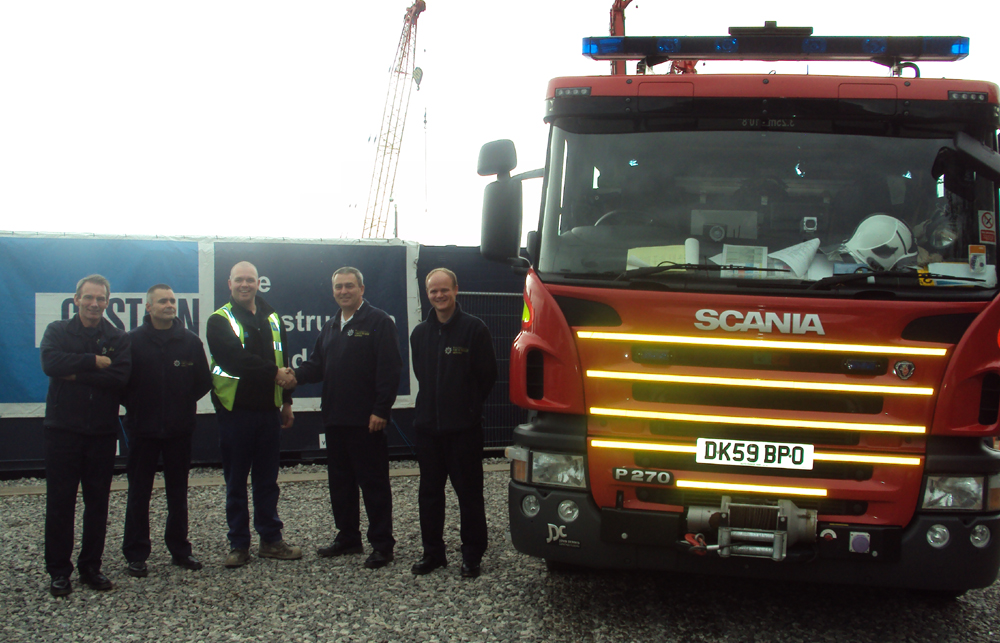Training Rescue Operation In Wales

14 May 2013
Firefighters from Merseyside Fire and Rescue were invited to carry out a training rescue operation at the Costain Welsh Water Heswall WwTW site.
The Costain team in north Wales is currently undertaking a £7million scheme to construct two large underground storage tanks at Heswall Wastewater Treatment Works and a satellite site at Riverbank Road. The project is part of the European Shellfish Waters Directive, which will improve the performance of wastewater treatment in the area by reducing the number of spills into the Dee Estuary, thus improving its water quality.
A crew from Heswall Community Fire station carried out various emergency training exercises to practice their response to a number of scenarios which they could potentially encounter.
With the storage tanks still under construction, the team carried out a drill which involved rescuing an ‘injured’ dummy by winching him up from the tank. The aim of the training was to assess which equipment the team would use in the case of a rescue and to provide a real life scenario of rescuing people at height.
This was a challenging operation due to the height of the tanks, which are 19 metres below ground.
Richard Heaps, Costain Project Manager said: “The team felt that the site provided an ideal opportunity for the Fire Service to carry out an emergency rescue drill. The visit has been extremely beneficial to our team who has been able to assess and validate the emergency access procedures that we have in place. It has also been reassuring to know that the local emergency services are fully trained in rescuing site operatives in this unique environment.”
John Madden, Costain Framework Director said: “Costain is happy to assist local emergency services in their preparations for unusual events. We would hope that the procedures would never be needed but we are reassured that, should the need occur, the emergency services have been trained.”
Ends
